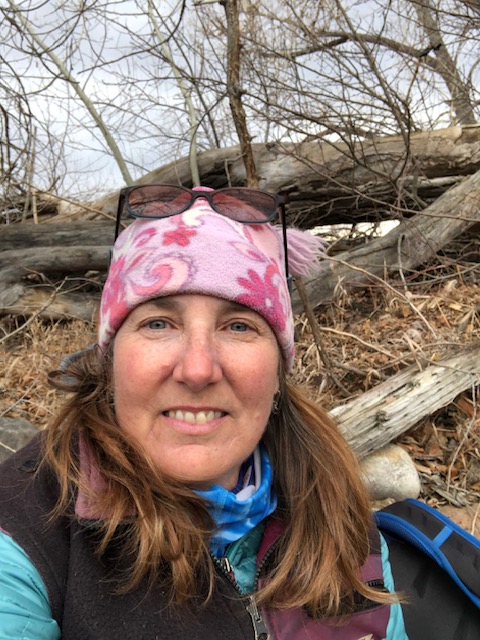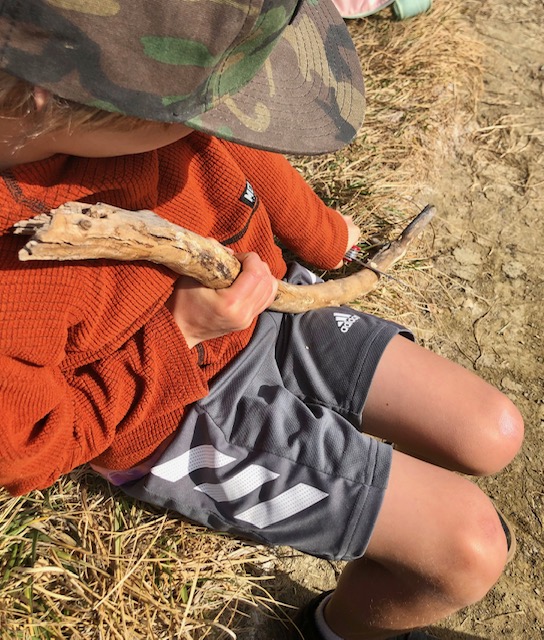Learning in Nature, about Nature, with Nature.

Learning happens everywhere, and all kids need to go on outdoor adventures and play.
This is what After-school JOY offers.
After a full day in school, what could be better for children than spending time outdoors exploring their school’s neighborhood, climbing trees, running through fields, wading in streams, and relaxing under the canopy of trees sharing what they’re learning in school, drawing, telling stories, jokes and singing songs?
Journeys Out Yonder, LLC is registered with the State of Colorado.
Fireside Elementary School, Louisville
ENROLLMENTS CLOSED
2-day minimum: Monday – Friday, from 2:45pm – 5:15pm
$30/day (Billed monthly)
- Snacks
- Keeping hydrated
- Neighborhood adventures
- Climbing trees, bouldering, and wading streams
- Getting dirty and wet
- Observing and imitating animals
- Delving into Fantasy Play
- Using and Making Maps and Following Paths
- Investigating Small Worlds
- Gathering cool stuff, for who knows what!
- Building relationships
- Learning to manage risk and avoid hazards
- Inventing things we love to do
- Breaking out into song and dance
- Making art with found objects

Mary L. Russell, Owner and Lead Teacher
Cedarsong Way Nature-based Early Childhood Teacher
Colorado Early Childhood Lead Teacher and Director Qualified
Colorado K-6 Elementary Education License
Bachelors of Science in Education, University of Vermont
Masters in Educating for Sustainability, Antioch University New England
American Red Cross Adult and Pediatric 1st Aid/CPR/AED certification
Wilderness First Aid Trained (WMI and NOLS)
Call: 970-618-1450
email: journeysoutyonder@gmail.com
ENROLLMENT AND REGISTRATION
2024-25 After School Program
Enrollment Closed
- A maximum of 8 children will be enrolled per day.
- Masks are optional.
- Cost: $30 per day/billed monthly
- Payment methods: Zelle preferred. Cash and check accepted.
- Siblings will receive preference for enrollment when an opening is available.
- New inquiries are asked to review JOY’s website to determine if this is the right program for you and your child/children.
- New inquiries for enrollment will be considered after both a phone call and a scheduled meet-and-greet with parents and child/children is completed with Mary.
- After Mary has confirmed your child/children are accepted for enrollment a registration form will be sent to you to be completed, and a required enrollment fee and deposit will be required to hold your child’s/children’s place in the specific program identified on the registration form.
- Once full registration is complete, Mary will share JOY’s “Family Orientation Document”.
LOGISTICS
- JOY staff will meet children outside their school upon dismissal. After enjoying a snack, and hearing about each other’s day in school, we’ll all head out into the neighborhood on foot.
- Parents will pick-up their child at the predetermined location, by 5:15 pm.
- COVID-19 protocols will align with Colorado’s Dept. of Public Health and Environment guidelines.
- JOY staff will provide after school snacks.
COLD WEATHER CLOTHING
- Knit hat – preferably one that covers the ears.

- Water proof mittens – preferably ones that have a high sleeve and only a thumb hole.
- The hands will stay warmer when the fingers stay together, and when no snow gets in the mitten.
- Knit finger gloves – these are for eating outdoors, and can be kept in the backpack all winter.

- Layers of clothing:
- Top – shirt, turtleneck, sweater/sweatshirt, water resistant outer layer (shell if under layers are thick and warm), or insulated out layer.
- Bottom – leggings AND second pant layer, water resistant out layer reaching to bottom of boots.

- Feet – Thick knee socks (not foot-only or ankle high socks), insulated, thick tread boots reaching up to calf.
Children will come with their own backpack, with all of the following:
-
- Drinking water in a water bottle
- Proper clothing for the day’s weather – see requirements above.
- Closed-toes shoes – please, no flip flops or dress shoes
Optional items in child’s backpack:
- Camera
- Magnifying glass
- Binoculars
- Rope/twine, etc.
- Frisbee, ball, etc.
- Rainy days – Raincoat, rain pants, rain boots
Play hunting and gathering games

- Shape small worlds

Develop friendships with animals

Construct adventures
Mary has been trained in recognizing and initiating David Sobel’s Childhood and Nature Principles when engaging with children outdoors:
- Making forts and special places;
- Playing hunting and gathering games;
- Shaping small worlds;
- Developing friendships with animals;
- Constructing adventures;
- Descending into fantasies;
- Following paths and figuring out shortcuts.
Follow paths and figure out shortcuts
Leave No Trace, Nature and Trash-to-Treasure Art
What we bring out in our backpacks, pockets, etc. will return home with us. Of course, using trash receptacles we find in the community is completely appropriate. Wild animals do not need our help with food, and we discourage feeding them. Packing lunch and snacks in reusable containers creates less waste.
Ms. Russell’s Trash-to-Treasure on Disney Planet Challenge,
From 2007 – 2012, I was a middle school science teacher. One of the many fun activities I developed to teach one of my standards, was Trash-t0-Treasure. Below is a photo of one of my students who created a business from the repurposed waste she collected at home.




Using our Observation Skills
In order to maneuver the world, children must learn to use all of their senses – seeing, hearing, speaking, smelling, touching, intuition, feelings, etc. As children grow and mature, adults can support their need for independence by respecting their own, unique gifts of observation.


Creature Care
While outdoors, we will encounter wildlife. We will instill a sense of respect and compassion for all living creatures, by modeling a sense of wonder and amazement at all bugs, animals, spiders, and reptiles we encounter, and teach the children to become allies with them, not adversaries. All creatures will be left in their natural habitat, where we found them.

Managing Risks and Avoiding Hazards
It is imperative that children learn to manage risks, and identify and avoid hazards;
- Manage risks – something within their control (using their critical thinking, problem solving, physical, emotional, and social skills to learn new skills, meet new people, etc), and,
- Avoid hazards – something they cannot control (being hit by a car in the street or a falling tree toppled by the wind, or being struck by lighting.
With this in mind, teachers will ensure children understand and practice managing both risk and hazards in outdoor play. They love a challenge, and we will support their desires to climb up and down dry ditches, trees and rocks, to wade in streams, play with sticks, throw rocks, and build forts.












You must be logged in to post a comment.